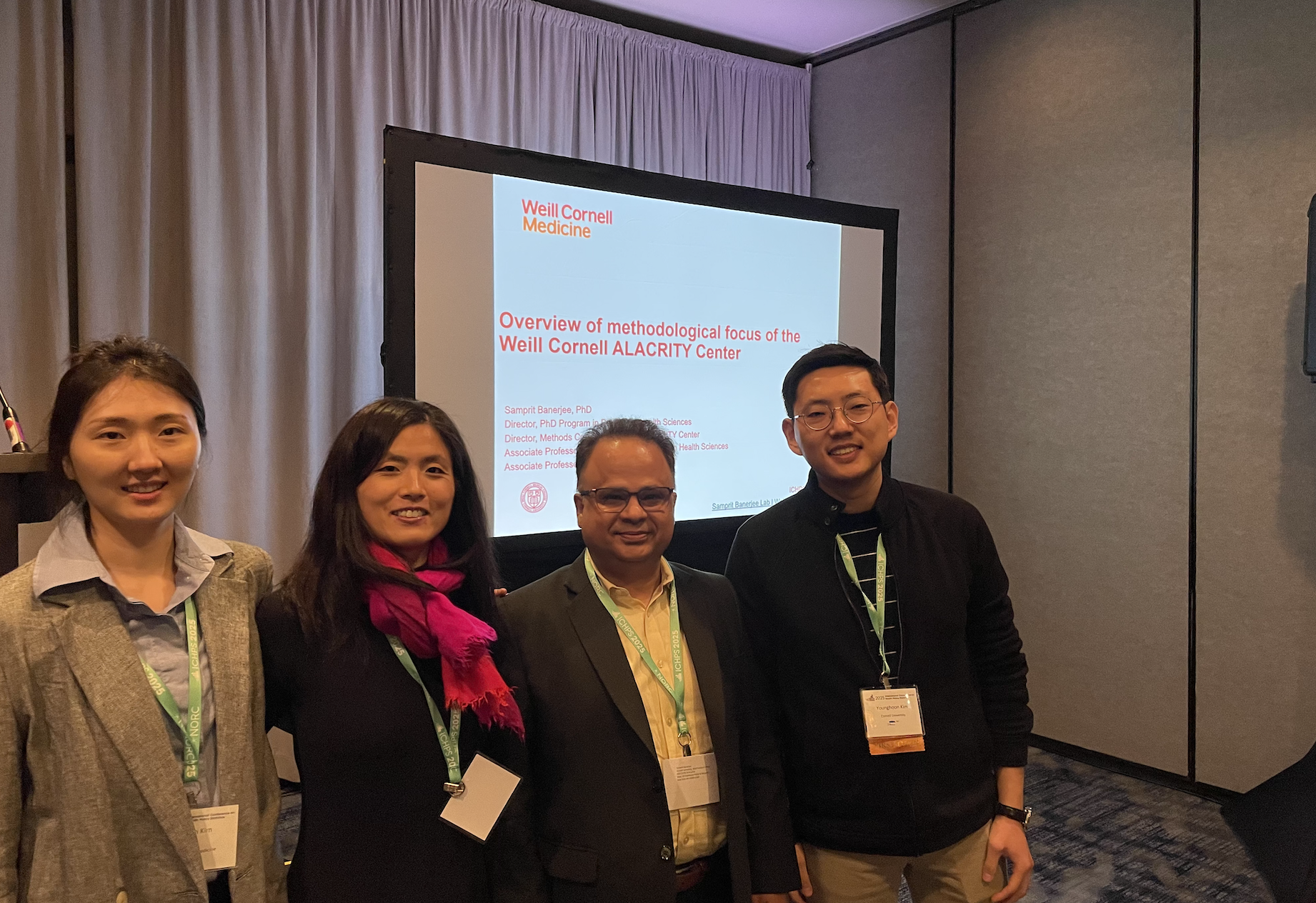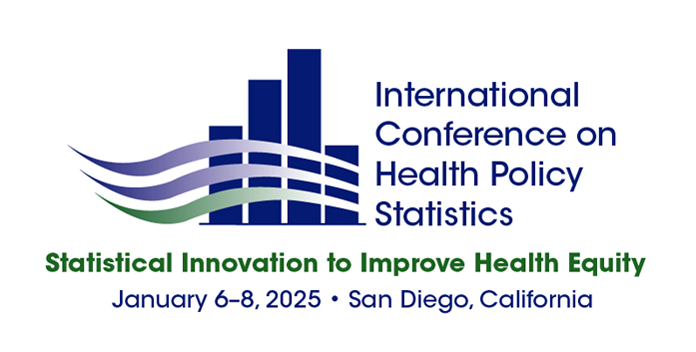Drs. Samprit Banerjee, Wenna Xi, Soohyun Kim, and Younghoon Kim presented at the 2025 International Conference on Health Policy Statistics (ICHPS) Statistical Innovation to Improve Health Equity on January 8th. The session was titled "Maximizing reach of mental health interventions through methodological advances with big and small data: A perspective from Weill Cornell ALACRITY Center."

In this session, they presented methodological research that has been developed in the context of mid-/late-life depression in an NIMH-funded ALACRITY Center (P50 MH113838). The Center's focus is to develop simplified mental health interventions that can be delivered by community clinicians. These interventions are augmented with digital technology (e.g., smartphones, wearables) and guided by big data analysis that identifies target populations of unmet need. Taken together, the goal of the Center is to shorten the timeline of intervention development to delivery in the community and rapidly inform policy for payment and adoption of these interventions. To support the goals of this Center, the Methods Core is tasked with methodological developments to chart new directions of research in mental health interventions. Specifically, they demonstrated how novel methodologies with "big" (e.g, electronic health records, health insurance claims, clinical notes) and "small" (e.g., data generated actively and passively through mHealth devices such as wearables, smartphones) data can identify populations with unmet need and deliver socially contextual mental health interventions with greater reach. The four presentations were: 1. Overview of methodological focus of the Weill Cornell ALACRITY Center (Presenter: Samprit Banerjee) 2. Predicting preventable and psychiatric hospitalizations in late middle-aged adults with depression (Presenter: Wenna Xi) 3. Targeted interventions and health policies through identification of patient subtypes with active mHealth data (Presenter: Soohyun Kim) 4. Detecting emotionally stressful periods from passive sensing data via mHeath devices (Presenter: Younghoon Kim).


